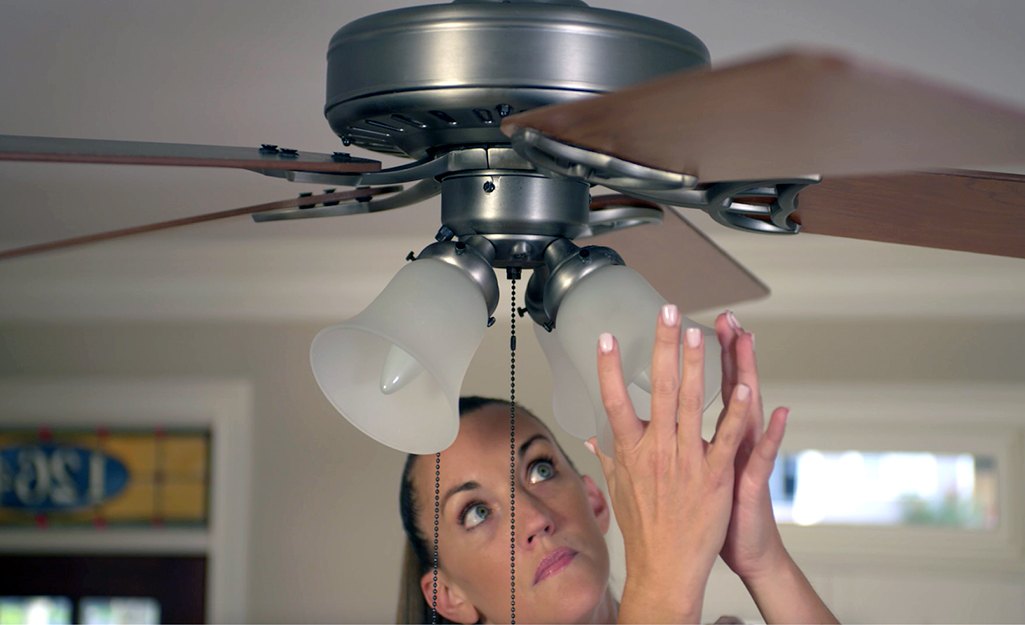How To Tell If Ceiling Fan Capacitor Is Bad?
A faulty capacitor can cause ceiling fans to slow down or stop altogether. Troubleshooting steps include cleaning the blades and checking electrical connections. If the capacitor is faulty, it needs to be replaced. You may consider purchasing a Best BLDC Ceiling Fan in India for energy efficiency and quieter operation. But how do you know if the problem is actually with the Ceiling Fan capacitor? In this post, we’ll guide you through some simple steps to help you determine whether or not your ceiling fan’s capacitor is on its way out. So grab a ladder and let’s get started!
3 Ways To Tell If Ceiling Fan Capacitor Is Bad
If your ceiling fan is moving slowly or making strange noises, it may be time to check the capacitor. The capacitor is a small, cylindrical component that helps the fan run smoothly by regulating electrical current. A bad capacitor can cause your fan to run slowly, make noise, or even stop working altogether.
Here are three easy ways to tell if your ceiling fan capacitor is bad:
- Check for physical damage
- Test the capacitor with a multimeter
- Compare your capacitor with a new one
- Check for physical damage. A damaged capacitor may have a bulging or leaking case, which is a sure sign that it needs to be replaced.
- Test the capacitor with a multimeter. Set the multimeter to the ohms setting and touch the probes to the terminals on the capacitor. If the reading is infinite, then the capacitor is open and needs to be replaced. If the reading is zero, then the capacitor is shorted and also needs to be replaced.
- Compare your capacitor with a new one. If you have a replacement capacitor on hand, you can compare it with your existing one to see if it matches in terms of size, voltage rating, and capacitance (measured in microfarads). If not, then your existing capacitor is probably bad and needs to be replaced.
What Happens If Ceiling Fan Capacitor Fails?
If your ceiling fan capacitor fails, the most likely scenario is that your fan will either spin very slowly or not at all. In some cases, you may also hear a humming noise coming from the fan. If you notice any of these issues, it’s time to replace your ceiling fan capacitor.
How Do You Know Your Fan Capacitor Is Bad?
A ceiling fan capacitor is a small black box that helps power the fan motor. Over time, these capacitors can fail and need to be replaced. Here are some signs that your ceiling fan capacitor is bad:
- Your ceiling fan starts making strange noises.
- The blades of your ceiling fan stop moving or spin slowly.
- Your ceiling fan doesn’t seem to have as much power as it used to.
Look out for any of these symptoms that it might be time for a new ceiling fan capacitor. Many best in India stores sell those.
Indications Of A Bad Ceiling Fan Capacitor
If your ceiling fan is making strange noises, won’t start, or runs slowly, it may be time to check the capacitor. The capacitor helps the ceiling fan motors start and run smoothly by storing energy. A bad capacitor can cause all sorts of problems with your ceiling fan. Here are some indications that you may have a bad capacitor:
- Ceiling fan makes strange noises: If your ceiling fan starts making strange noises, it may be a sign that the capacitor is going bad. The noise may be a humming or buzzing sound.
- Ceiling fan won’t start: If your ceiling fan won’t start, it could be because the capacitor is not working properly. This is especially true if you notice that the blades are not spinning when you turn on the ceiling fan.
- Ceiling fan runs slowly: Another indication that you may have a bad capacitor is if the ceiling fan blades are spinning slowly. This can happen if the capacitor is not able to store enough energy to keep the motor running smoothly.
How Do You Know Your Fan Capacitor Is Bad?
If your ceiling fan is having issues starting up or if it’s making strange noises, it could be a sign that the capacitor is going bad. The capacitor is responsible for providing the initial power boost to get the ceiling fan motor running. Over time, capacitors can wear out and need to be replaced.
If you’re not sure whether or not your capacitor is bad, there are a few tests you can try at home. First, check to see if the capacitor is swollen or leaking. If it is, this is a clear sign that it needs to be replaced.
Next, use a multimeter to test the capacitor for continuity. If there is no continuity, this means that the capacitor has failed and needs to be replaced.
Finally, try testing the capacitor with a voltmeter. If the reading on the voltmeter is below 120 volts, this means that the capacitor is no longer able to hold a charge and needs to be replaced.
How Can I Know If Ceiling Fan Capacitor Is Bad?
If your ceiling fan is making a humming noise, it could be a sign that the capacitor is going bad. Other signs include the fan blades not spinning smoothly or the fan not starting up at all. If you suspect your capacitor is bad, you can test it with a multimeter. First, disconnect the power to the fan. Then, remove the capacitor from the fan and check it for continuity using the multimeter. If there is no continuity, then the capacitor needs to be replaced.
Visit also – Tips for branding your YouTube channel



Latest Comments